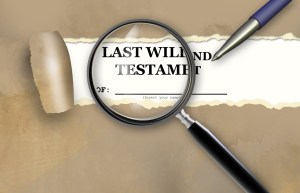 A will can be an important tool in an estate plan. It can serve to designate guardians for minor children, direct the distribution of assets, and nominate a personal representative to carry out the terms of the will.
A will can be an important tool in an estate plan. It can serve to designate guardians for minor children, direct the distribution of assets, and nominate a personal representative to carry out the terms of the will.
In Utah, a will can be created by any person over the age of 18 who is of sound mind. Generally, the basic requirements for creating a will in the State of Utah are as follows:
1. The will must be in writing
2. The will must be signed by the person making the will (testator)
3. Two competent persons must witness the testator signing the will
4. The two witnesses must sign the will within a reasonable time after the testator signs
Although generally not recommended, Utah law allows interested persons who will inherit property or obtain other rights under the terms of the will to act as witnesses (See Utah Code Section 75-2-505).
Court rules require a document such as a will to be verified before it can be admitted as evidence. Alternatively, to have the witnesses called into court to verify the authenticity of a will, Utah Probate Code Section 75-2-503 allows for the witnesses to sign a “self-proving” affidavit in conjunction with the will. A “self-proving” affidavit is a signed and notarized declaration made by the witnesses that the testator was over the age of 18, signed voluntarily, was of sound mind and was not acting under constraint or undue influence. The affidavit allows an uncontested will to be admitted to Utah probate court without further involvement from the witnesses.
In addition to the rules for making a will outlined in the above paragraphs, Utah Probate Code Section 75-2-501(2) allows a will to be valid without witnesses signatures if the testator’s signature and material portions of the document are in the testator’s own handwriting. This type of will is referred to as a holographic will.
Lastly, any written document that was not executed in compliance the above rules but which can be proved by clear and convincing evidence that the person intended the document to be his or her will may be accepted as such by the court.





